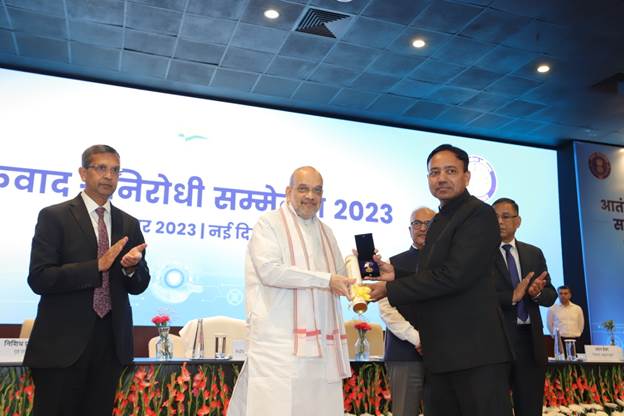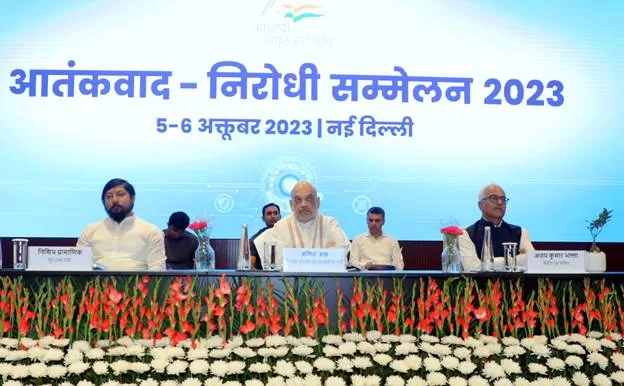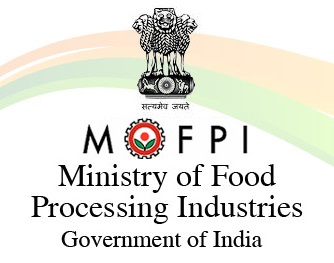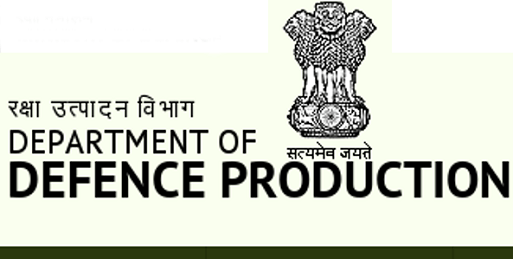Union Home Minister and Minister of Cooperation, Shri Amit Shah, inaugurated a two-day anti-terror conference organized by the National Investigation Agency (NIA) in New Delhi. The event was attended by various dignitaries, including Minister of State for Home Affairs, Shri Nishith Pramanik, Home Secretary, Director Intelligence Bureau, Director General NIA, Director Generals of Central Armed Police Forces, State Police Chiefs, and senior officials from the Union and State governments.
Union Home Minister Shri Amit Shah awarded medals to NIA officials for their outstanding service during the anti-terror conference. In his inaugural address, he emphasized that under Prime Minister Shri Narendra Modi’s leadership, central and state agencies have effectively curtailed terrorism in the country over the past 9 years. Shri Shah stressed the importance of dismantling the entire terrorism ecosystem, suggesting the establishment of a Model Anti-terrorism Structure under NIA’s purview. He called for uniform hierarchies, structures, and investigation protocols among anti-terrorism agencies in all states to enhance coordination. Shri Shah urged these agencies to adopt innovative approaches in countering terrorism and highlighted the need for global, national, and grassroots collaboration to tackle the issue effectively.

In his inaugural address, Union Home Minister Shri Amit Shah highlighted that, under the leadership of Prime Minister Shri Narendra Modi, Central and State agencies have effectively combated terrorism over the past nine years. He emphasized the need to dismantle the entire ecosystem supporting terrorism, calling for the establishment of a Model Anti-terrorism Structure under the NIA’s purview. Shri Shah urged for uniform hierarchies, structures, and standard operating procedures (SoPs) for anti-terrorism agencies in all states to enhance coordination between central and state entities. He emphasized adopting a rigorous approach to prevent the formation of new terrorist organizations.
Shri Shah emphasized that the role of agencies like NIA, ATS, and STF should extend beyond investigation, encouraging innovative measures to counter terrorism. He stressed that combating terrorism requires collaboration at global, national, and grassroots levels, involving various states and international cooperation.
The Home Minister highlighted the government’s tough stance on challenges like crypto, hawala, terror-funding, organized crime syndicates, and narco-terror links. He emphasized the importance of leveraging multidimensional, AI-based databases for investigation, prosecution, prevention, and action, urging every police station and young police officers to maximize their use for effective counterterrorism efforts.
The Inter-Operable Criminal Justice System (ICJS) has been successfully implemented, connecting 99.93% of police stations, totaling 16,733. Additionally, 22 thousand courts are now linked to e-Court, with approximately 2 crore prisoner records accessible through e-Prison and 1 crore via e-Prosecution. There are over 17 lakh prosecution records and forensic data available through e-forensics. Furthermore, the National Automated Fingerprint Identification System (NAFIS) holds more than 90 lakh fingerprint records.
Under Integrated Monitoring of Terrorism (i-MoT), data from 22 thousand terrorist cases is accessible for monitoring UAPA registered cases. The system also contains data from more than 5 lakh narco-offenders under NIDAN (National Integrated Database on Arrested Narco-Offenders) and data of about 1 lakh human traffickers through the National Database of Human Trafficking Offenders (NDHTO). Crime Multi Agency Center (Cri-MAC) holds data from more than 14 lakh alerts, while the National Cyber Crime Reporting Portal (NCRP) contains data from over 28 lakh complaints. The Prison Database contains biometric information on prisoners and their visitors, and a national-level terrorism database from the NIA is also available.
Union Home Minister and Minister of Cooperation, Shri Amit Shah, emphasized the need for a common training module for central and state-level counter-terrorism agencies to standardize counter-terrorism methodologies. He called on the NIA and IB to take the lead in this endeavor and shift from a “need to know” to a “need to share” and “duty to share” approach.
Shri Amit Shah highlighted the significant reduction in terrorist incidents from 6000 in 2001 to 900 in 2022 under the leadership of Prime Minister Shri Narendra Modi. He commended the NIA for achieving over a 94 percent conviction rate but stressed the importance of further improving it. He urged all states to take measures to enhance conviction rates.
The Home Minister noted that terrorism knows no boundaries, and it requires collective efforts to eradicate this menace. He suggested formulating five actionable points during each session of the two-day conference and forwarding them to the Union Home Ministry.
A glimpse at the significant reduction in incidents of violence in Jammu and Kashmir during the 9 years from 2014 to 2023 compared to the 10 years from 2004 to 2014
Jammu and Kashmir: A New Dawn of Development and Peace
| Indicator | From June 2004 to May 2014 | From June 2014 to August 2023 |
Percent decline |
| Total Incidents | 7217 | 2197 | 70 % decline |
| Total Deaths (Civilian + Security Forces) | 2829 | 891 | 69 % decline |
| Civilian Deaths | 1769 | 336 | 81 % decline |
| Security Forces’ Deaths | 1060 | 555 | 48 % decline |





